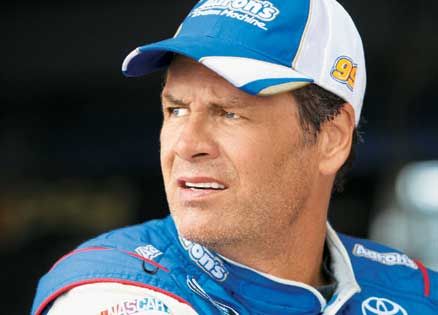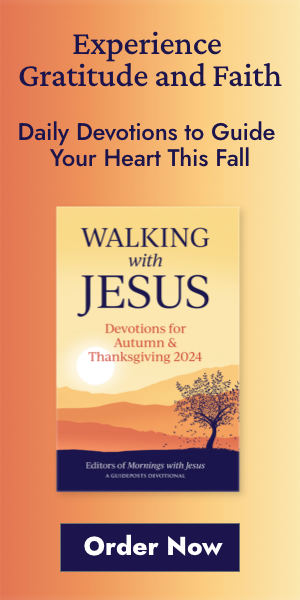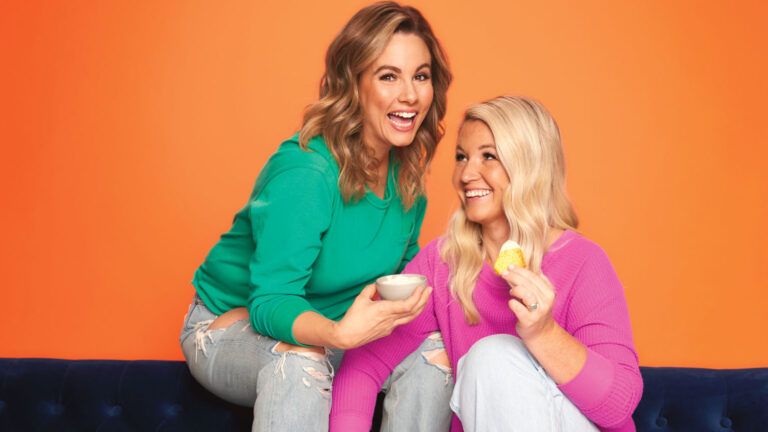I knew it was there. And for nine long years, I tried not to think about it: a DVD of my first NASCAR victory, after 16 winless seasons and 462 tries, at the 2001 Daytona 500—the biggest, most important race of them all. My sister Connie had recorded the race for me, like all my races, and slipped the DVD inside a case she’d decorated with stars and smiley faces.
The DVD was tucked in the top drawer of the entertainment center in my living room. I walked past that drawer every day. But I never opened it. That would have meant opening up the feelings I’d kept a lid on all these years. Yes, I’d finally gotten the win I’d prayed for, ending years of public and personal doubts about my abilities. Yes, I’d driven into Victory Lane at Daytona, the dream of every driver. But watching the ending was more than I could bear.
I’ll never forget the moment I climbed out of my car. Everyone important to me was there, showering me with wild whoops, confetti and champagne. My wife Buffy. My two beautiful daughters, Caitlin and Macy. The rest of my family. My race team. All but one. The one I wanted to see most. My buddy and mentor, who had hired me to drive for his team, who had coached me to win that day. “Where’s Dale?” I asked.
To NASCAR fans Dale Earnhardt was The Intimidator, the fearless, mustachioed man in the black No. 3 car. The most swashbuckling driver since Richard
Petty. Dale owned the car I raced.
The last I’d seen him, in my rearview mirror on the final lap, he was running third, behind me and his son, Dale Junior. Just like he drew it up for us a few days ago, I thought. Whoever gets to the front, stay there and the others will work to protect his lead.
I kept waiting for Dale to come up and hug me, flash that big old smile of his. I didn’t know then that seconds before I crossed the finish line, there’d been a bad crash behind me.
On the final lap, two cars had hit between turns three and four. They bounced off the wall and spun around, smoking, then slid across the track and came to rest, mangled, in the infield. One driver climbed out of his car, unhurt. The other driver had to be cut from his car. It was Dale, killed when his car hit the wall.
How did this happen? I asked myself. People said Dale had never raced like he did that day. Instead of trying to win, he’d kept his competitive fire in check, playing defense, maneuvering to keep other cars from taking a run at Dale Junior and me. Was I to blame? I sensed it everywhere. At the supermarket. At the track. The worst was at the race-team headquarters. There were a couple hundred people working there, and every morning I wondered if they were thinking, If it weren’t for him, Dale would still be here.
I tried not to think about it. When I did, I found myself agreeing with them. Sure, it had been Dale’s race strategy, but if he hadn’t been trying to help me…. God, why? What’s the point of finally winning when it cost my friend’s life?
For weeks afterward, nothing went right. Not at the track, where I kept getting beat, and no wonder, because for the first time in my life my heart wasn’t in racing. Not at home with Buffy. Nights, after little Macy had gone to bed, Buffy tried to get through to me. “I can see it’s eating you up inside,” she said one night. “Talk to me, Michael.”
“I can’t,” I said. How could I tell her about the voices that haunted my dreams, saying I’d let Dale give his life for me? The guilt and sadness I woke up with every day? I couldn’t talk to anyone about it. Not Buffy. Not Dale Junior, not Dale’s widow, not a pastor.
So Buffy gave me the space she thought I needed. “It wasn’t your fault,” she kept telling me. But how could she know, when I couldn’t be sure myself?
I’m a racer. I had to get back in the game. I hung my hopes on the July 4 race, the Pepsi 400, at Daytona. One of my favorite races. If I can win this one for Dale, I can get my life back to normal. As the day grew closer, I started feeling like my old self. I wasn’t just driving to win the race. I was driving for redemption.
When Dale Junior and I rolled onto the track that night, the crowd cheered like I’d never heard before. It was so cool. The green flag dropped. I tore off the line. For 395 miles I scratched and clawed for position. With a few laps to go, my teammate Junior grabbed the lead. I closed the gap, till just one car separated us.
Gripping the wheel, I tried to press that gas pedal through the floorboard. I roared past the second-place car. The white flag dropped. Final lap. I set my sights on Junior. Go get him, Mikey, I told myself.
Junior’s car got bigger and bigger in my windshield. Time to make my move. I gritted my teeth, but I couldn’t quite hold back my feelings. I thought of Dale and how much I missed him, and how badly the last five months had hurt. I thought of how tough it had been for Buffy. I thought about Junior and what he must be feeling right now.
I pulled up to his rear bumper. Put him away, I thought. Pass him. The win’s there for the taking! Wasn’t that what Dale Senior always preached?
My competitive juices reached a boil…but I didn’t pass. I stayed on Junior’s bumper. I protected his lead, just as he and Dale had protected mine back in February. The checkered flag came down. Junior won. I followed in his wake.
After his victory lap, we stopped in the infield for a celebration with the fans. The cheers were even louder than before. They weren’t just cheering for Dale Junior and me, they were cheering for Dale Senior too.
Junior grabbed me and we hugged each other hard. I knew somewhere in heaven Dale was flashing that big old grin of his. Perhaps finally I could feel at peace. I’d done for his son what he’d done for me.
Except it hadn’t cost me my life.
Soon as the euphoria of Dale Junior’s win wore off, those voices haunted my dreams again. I woke in the morning feeling as guilt-stricken as ever. Buffy could tell the minute she saw my face. “Michael, what’s wrong?” she asked.
I stopped her. What good would talking do? “I don’t want to discuss it,” I said. “I don’t want you counseling me. I’m sick of this. I’m just going to deal with it on my own.”
After that, it was like something froze up between us. Buffy got counseling from a church outreach program a lot of drivers and crew attended. She tried to get me to join her. No way. Macy was the only one who could make me smile. She was too young to ask what had happened and why. I was Daddy, and that’s all she cared about. My happiest times were spent in our backyard with my little girl, hitting golf balls around.
Buffy and I stumbled along, trying to keep our marriage together for Macy. I loved Buffy, but it was a struggle, what with me still in denial, never wanting to talk about what had happened.
I won the Daytona 500 a second time in 2003. Eventually formed my own racing team, building the business from a shop behind my house to a garage the size of a Walmart. But every night I came home and passed that entertainment center in the living room. Maybe once a month I’d reach into a drawer and pull out a DVD of a race so I could study other teams’ strategies. But never that DVD from the 2001 Daytona 500. Never.
Lord, I know I need to sort out my feelings. Give me the courage to watch that race. Help me to forgive myself, to let go of this awful guilt.
One night last April, I somehow found the courage to slip the DVD into the player. I watched the pre-race interviews. I heard Dale tell reporters in his confident drawl, “You better keep your eyes on Michael.” He was talking to them, but I knew his message was for me. The losing is over, Michael. You’ll win for me.
The race began. Dale Junior and I got to the front of the pack early. Dale was behind us. He was battling back there, blocking. I never knew what he was dealing with. Drivers making charges, Dale fending them off. I know I couldn’t have done what he did. Junior couldn’t have done it, either. Maybe the way Dale raced that day did play a role in his death.
The final lap. I fixed my eyes on the screen. When we went into the third turn, I saw something that made me sit up straight. By that point we were home free. There was no catching Junior or me. Dale knew that. He wasn’t blocking or playing defense anymore. He was racing for himself, trying to finish third behind his buddy and his son—or maybe even win it all, if we slipped up.
Dale wanted me to win, but he wasn’t going to let me win. I bet Dale said, I got a chance to make a run on you two. Here I come.
He cut low on the turn to make his move and made contact with another car, sending him into the wall. Dale had died doing what he loved—racing, not blocking. It didn’t ease the pain of losing him.
But my relief was so tremendous I broke down sobbing. God, I’m sorry I didn’t come to you with this nine years ago, I prayed. If only I had trusted in your forgiveness and forgiven myself.
Every so often, I replay that DVD. It still makes me sad, but I don’t blame myself anymore. Now when I watch it, I’m reminded of a verse from 1 Corinthians 15: “It will happen in a moment, in the blink of an eye…those who have died will be raised to live forever. And we who are living will also be transformed.”
My friend and mentor Dale Earnhardt lives on through all those whose lives he touched, people he changed forever. Like me.
Download your FREE ebook, True Inspirational Stories: 9 Real Life Stories of Hope & Faith




